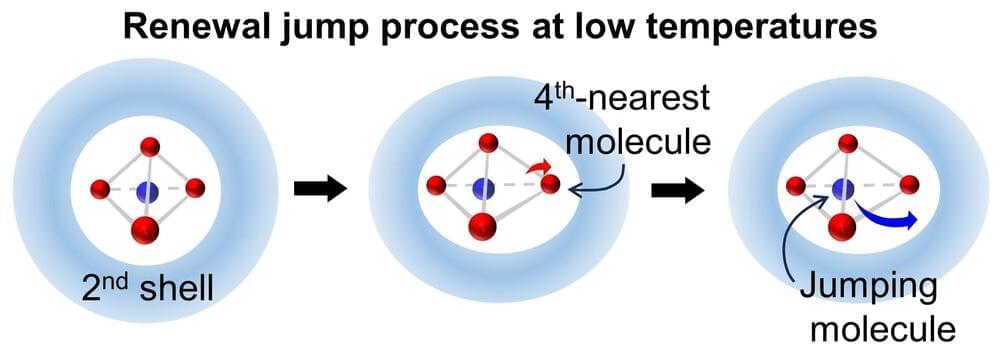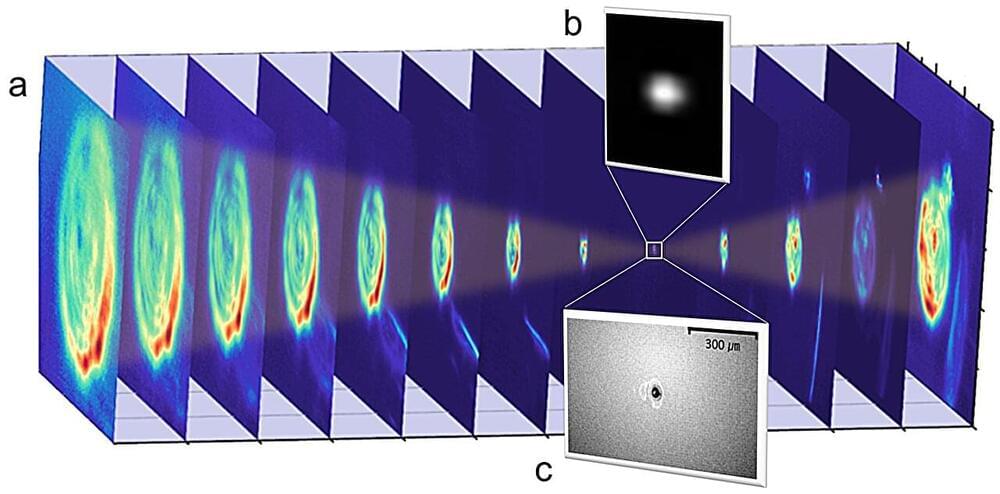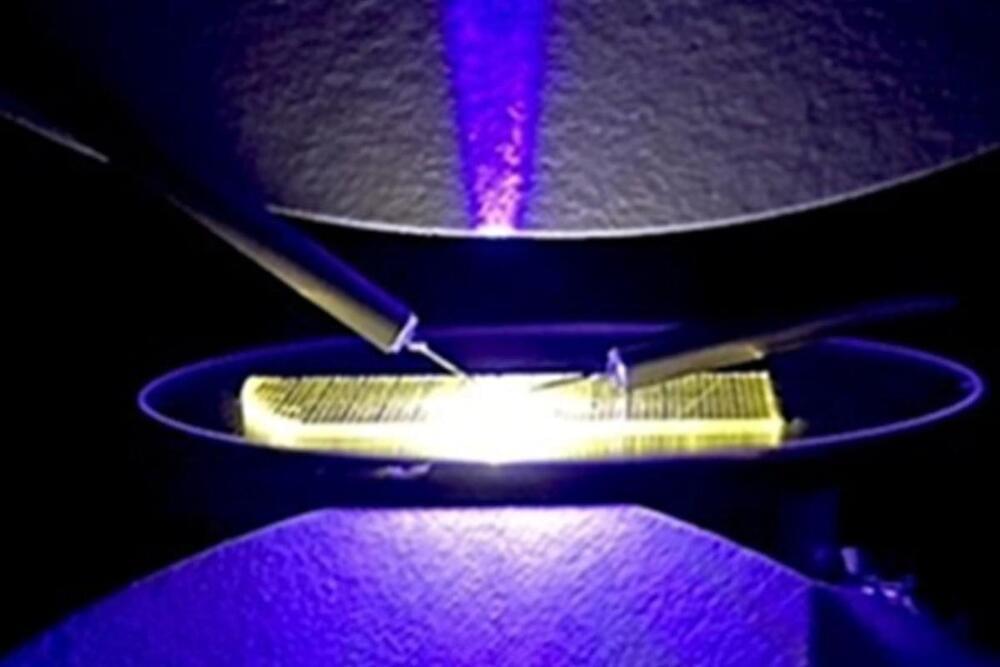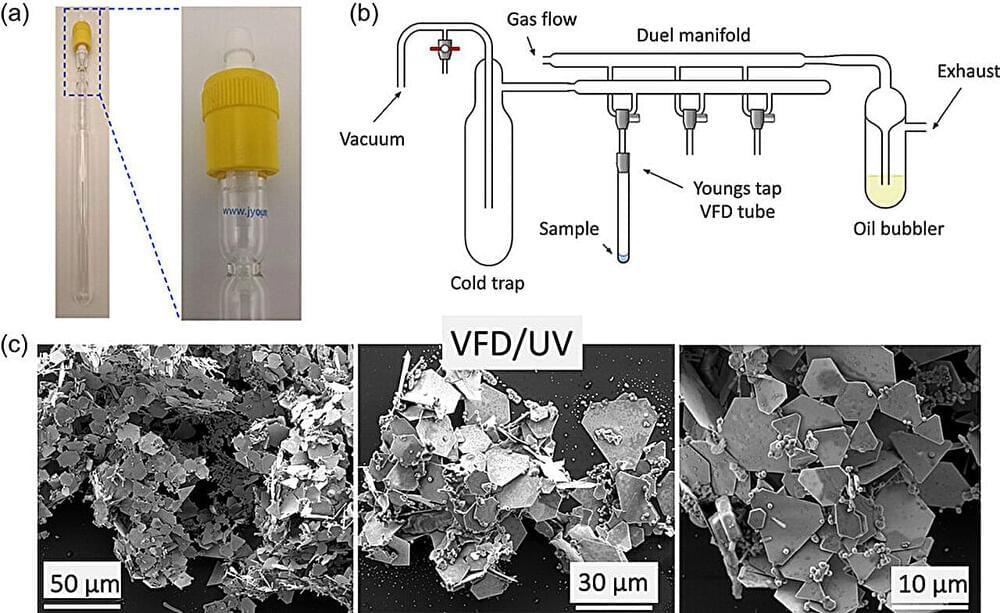A scientist at the Institute for Molecular Science has published a study that provides insight into the puzzling phenomenon of dynamic slowdown in supercooled water, an essential step toward understanding the glass transition in liquids.



Lying between the microwave and infrared regions of the electromagnetic spectrum, the terahertz (1 THz = 10¹² Hz) gap is being rapidly closed by development of new terahertz sources and detectors, with promising applications in spectroscopy, imaging, sensing, and communication.
These applications greatly benefit from terahertz sources delivering high-energy or high-average-power radiation. On the other hand, high-intensity or strong-field terahertz sources are essential to observe or exploit novel nonlinear terahertz-matter interactions, where the electric and/or magnetic field strengths play a key role.
The team of scientists, led by Dr. Chul Kang from Advanced Photonics Research Institute, Gwangju Institute of Science and Technology (GIST), Korea, and Professor Ki-Yong Kim from Institute for Research in Electronics and Applied Physics, University of Maryland, College Park, Maryland, U.S., has created the world’s strongest terahertz fields of 260 megavolts per centimeter (MV/cm) or equivalent peak intensity of 9 × 10¹³ watts per square centimeter (W/cm²).

An analysis of 15 years of national data on suicides and homicides shows that nocturnal wakefulness is associated with death by both suicide and homicide, possibly driven by deficits in behavioral and emotional regulation.
Risks for death by suicide and homicide peak at night, with nocturnal wakefulness, age, alcohol use, and relationship conflicts being especially prevalent as contributing factors. This is according to a new analysis by researchers in the Department of Psychiatry at the University of Arizona College of Medicine – Tucson.
A study shows our brains use basic sound rates and patterns to distinguish music from speech, offering insights to enhance therapies for speech impairments like aphasia.
Music and speech are among the most frequent types of sounds we hear. But how do we identify what we think are differences between the two?
An international team of researchers mapped out this process through a series of experiments—yielding insights that offer a potential means to optimize therapeutic programs that use music to regain the ability to speak in addressing aphasia. This language disorder afflicts more than 1 in 300 Americans each year, including Wendy Williams and Bruce Willis.

The gallium nitride purple surface-emitting laser with a power conversion efficiency of more than 20%. Credit: Tetsuya Takeuchi / Meijo University.
Gallium nitride (GaN) vertical-cavity surface-emitting lasers (VCSELs) are semiconductor laser diodes with promising applications in various fields, including adaptive headlights, retinal scanning displays, point-of-care testing systems, and high-speed visible light communication systems. Their high efficiency and low manufacturing costs make them especially appealing for these applications.
GaN-VCSELs are composed of two layers of special semiconductor mirrors, called distributed Bragg reflectors (DBRs), separated by active GaN-semiconductor layers, which form the optical resonant cavity, where laser light is generated. The length of this resonant cavity is crucial for controlling the target laser wavelength, called the resonance wavelength.

Menstruation can often come with a degree of discomfort as the uterus prepares to shed. For some, the effects can be horrendous.
It’s estimated that some 5 to 8 percent of women experience moderate to severe symptoms that have a noticeably negative impact on their lives, mental health, and ability to function normally. These premenstrual disorders, or PMDs, affect millions of women globally, yet we know shockingly little about their long-term consequences.
Now, a new nationwide observational study in Sweden has shown that women with PMDs have an increased risk of suicide. In fact, they’re more than twice as likely to die by suicide as women without PMDs. It’s a sobering figure, one that strongly suggests more work needs to be done to understand PMDs, and help the people who suffer from them.

It’s a Saturday afternoon at a kids’ birthday party. Hordes of children are swarming between the spread of birthday treats and party games. Half-eaten cupcakes, biscuits and lollies litter the floor, and the kids seem to have gained superhuman speed and bounce-off-the-wall energy.
But is sugar to blame?
The belief that eating sugary foods and drinks leads to hyperactivity has steadfastly persisted for decades. And parents have curtailed their children’s intake accordingly.


Ledger, a French startup mostly known for its secure crypto hardware wallets, has started shipping new wallets nearly 18 months after announcing the latest Ledger Stax devices.
The updated wallet features an E-Ink display and has been designed in partnership with Tony Fadell, one of the main designers behind the iPod. E-Ink technology is generally used for e-book readers like the Amazon Kindle or the Rakuten Kobo because the displays look good in daylight and don’t require a lot of power.
After fulfilling all preorders, the company will list the Ledger Stax on its website once it has more stock available. The reason the hardware wallet fell behind schedule is the company may have overpromised on the design front. The Ledger Stax features a curved E-Ink display. It said it has been more difficult than expected to produce curved E-Ink displays at scale.

In a surprise discovery, Flinders University nanotechnology researchers have produced a range of different types of gold nanoparticles by adjusting water flow in the novel vortex fluidic device—without the need for toxic chemicals. The article, “Nanogold Foundry Involving High-Shear-Mediated Photocontact Electrification in Water,” has been published in Small Science.